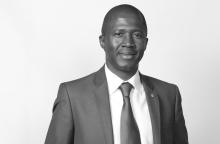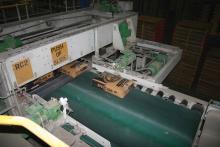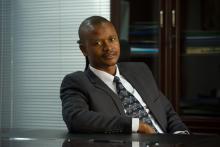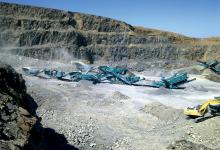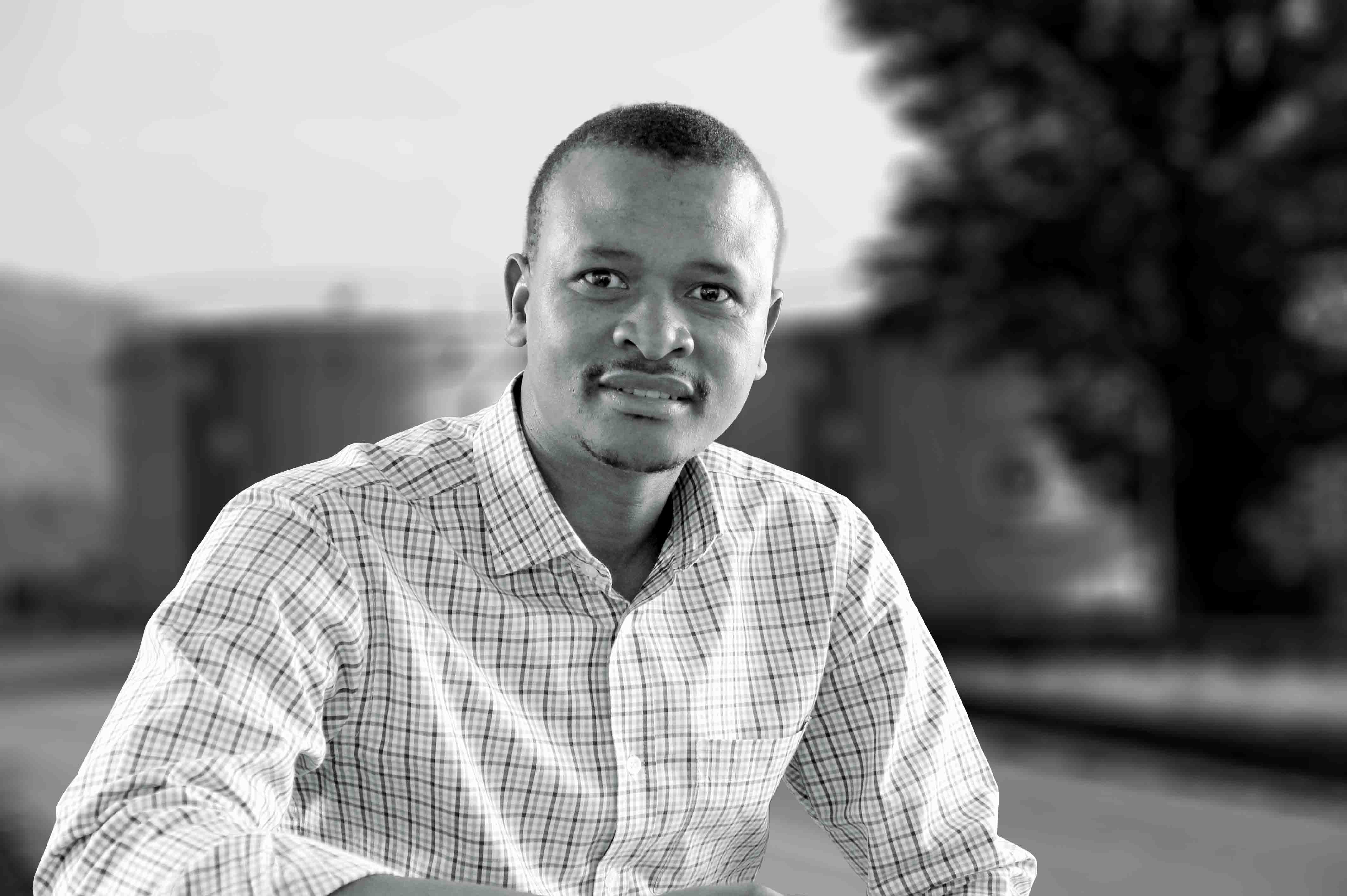
Bheki Mthembu, the newly-appointed CEO of CIMERWA, the only integrated cement maker in Rwanda, will further drive the company’s growth agenda with a ‘beyond the ordinary’ approach reinforced by market innovations and product diversification. Munesu Shoko reports.
The African cement market is a very competitive space with both local producers and importers jostling for a share of the potentially lucrative, but overtraded market. In such a highly competitive environment, conventional business approaches have lost their place. This is the view of Bheki Mthembu, who, in December 2016, assumed the role of CEO at CIMERWA Ltd, Rwanda’s only integrated cement maker and part of PPC, one of the biggest construction materials suppliers in Africa. In such a cut-throat trading environment, Mthembu is of the view that innovation has a key role to play in the cement opportunity space.
“We will not survive in this highly competitive market if we continue doing what we have always done in the past. We thus need to beef up customer experience standards, embrace market innovations, diversify our product range and services beyond the ordinary,” he says. He draws this from more than 20 years’ experience in the cement-making environment. Prior to his appointment as the new CEO of CIMERWA, Mthembu, who is a qualified chemist by profession, had been the general manager of PPC’s Hercules and Jupiter cement operations in Gauteng, South Africa.
Mthembu is a proponent of innovation and modernisation, key values shared by his company, PPC. PPC believes that modernisation of its plants is critical to building and sustaining the momentum needed for long-term development. In such an environment, Mthembu has thrived in various roles during his 20-year stay at PPC. His PPC career kicked off back in 1995 when he joined as a trainee chemist before going on to manage various PPC laboratories. His understanding of the manufacturing processes paved the way for an opportunity to move into quality assurance when he was appointed group quality assurance manager in 2010. In 2013, he was then promoted to become PPC group technical services manager, before assuming the GM role at Hercules a year later and adding Jupiter to his portfolio in 2016.
As he takes over the reins at CIMERWA, with two decades of experience in cement manufacturing under his belt, he is excited about the prospects ahead. Equipped with his modern ideas of doing business, he is determined to further drive CIMERWA to new heights, as a cement plant which represents a new era of “modernisation” in every aspect of the word. As a strategic investor on the African continent, PPC saw an opportunity in Rwanda to reposition the existing CIMERWA plant, originally commissioned in 1984, as a regional player by modernising and upgrading both the operation and crucially, the skills set of the local team.
The modernisation process kicked off in early 2013 after PPC purchased a 51% stake. Two years of construction and an investment of US$165 million subsequently saw the capacity of the plant increasing by 500,000tonnes to 600,000tonnes per year. The plant has also been geared towards long-term productivity and efficiency through the introduction of a high-tech, five-stage preheater calciner, which has reduced energy use significantly.
The modernisation process also saw the transition from wet to dry process technology. CIMERWA successfully progressed from running a wet-feed kiln system to a state-of-the-art, five-stage preheater calciner.
Just like PPC and Mthembu, Rwanda believes in the power of digital technology in driving industrial efficiency, boosting product quality and opening up market access. In line with the country’s 2020 vision, which is focused on poverty alleviation and industrialisation, the Rwandan government invested in a 15MW peat plant to support PPC’s CIMERWA operation. The government is also driving the use of alternate fuels such as peat to ensure environmental management and the sustainable use of natural resources.
“Our approach to modernisation means that we are able to be a real strategic partner to the Rwandan government. Because we have installed production capacity that exceeds the current national cement demand, we are able to satisfy Rwanda’s cement needs to deliver on the country’s infrastructure projects without relying on imported cement. This means that the local currency is protected, while we also create sustainable employment in the country,” says Mthembu.
“Another key benefit of our approach to modernisation is skills transfer, equipping current and future generations with critical skills related to advanced cement manufacturing technology, as well as technical sales and distribution. Developing and nurturing local skills is critical for the sustainability of CIMERWA. This is also aligned to Rwanda’s vision of becoming a knowledge-based economy,” adds Mthembu.
Speaking of current market conditions, Mthembu tells Aggregates Business International that the Rwandan cement market is currently saturated due to an influx of imported cement products. This is considering that CIMERWA’s current capacity already exceeds the available local demand. CIMERWA has an installed cement production capacity of 600,000tonnes/year, versus a total Rwandan consumption of about 530,000 tonnes/year.
Rwanda is part of the East African Community (EAC), a free trade market. “We know that cement producers in our neighbouring countries have excess production capacities. Given that regional capacity utilisation among Kenya, Uganda and Tanzania cement firms is around 60%, they tend to export their excess supplies to neighbouring countries at inflated prices. Rwanda is one of those export markets – which is why we deem our local plant of significant strategic importance,” says Mthembu.
However, he believes that CIMERWA is also strategically positioned as a regional player and is able to service neighbouring Burundi and the eastern Democratic Republic of Congo (DRC). “Ongoing political uncertainty in the DRC and tension in Burundi remain a security risk and have hampered our plans of exporting to these countries. We are ready and well-positioned to service these markets when they stabilise.” Currently, over 90% of CIMERWA’s sales are locally-based, while the rest is going to export markets.
As he assumes his new role at CIMERWA, one of Mthembu’s key priorities is growing volume to increase plant capacity utilisation. “To this end, we want to venture into new markets and find new distribution channels,” he says.
“We also aim to increase our product offering and realign our route to market strategy to meet our customer value proposition. Throughout its 125-year history, PPC has always been known for, and continues to deliver, quality. Part of our strategic intent is to build on this promise and market reputation, and introduce higher-end premium products and services aimed at the industrial and construction segments in Rwanda.”
Looking ahead, Mthembu is very positive about the prospects of growth and believes opportunities abound in the next five-10 years. “It’s projected that Rwanda’s GDP growth will average 6.3% in 2017 before recovering strongly in 2018 and beyond. According to Business Monitor Intelligence (BMI), a combination of population growth, urbanisation and the migration of labour into higher value-added sectors will make private consumption the key driver of Rwandan economic growth during the 2016 to 2025 period. BMI additionally forecasts that consumer spending will rise in real terms by 6.6% in 2017. However, poor infrastructure will remain a significant barrier to quicker growth,” says Mthembu.
Meanwhile, the percentage of the population living in urban areas is growing fast: more than 450,000 dwellings are required in Kigali alone. There is general positivity about the economic growth of Rwanda, as cement demand tracks GDP growth.
Given these factors, Mthembu believes that the cement sector will remain on a positive growth path. “The government’s ongoing commitment to promoting the consumption of Rwanda-made products, thus protecting our local currency and reducing the trade deficit, will be the key driver in sustaining local businesses. Our alignment with this commitment stands us in good stead in terms of growing our partnerships with government and business to realise Rwanda’s growth prospects,” adds Mthembu.

